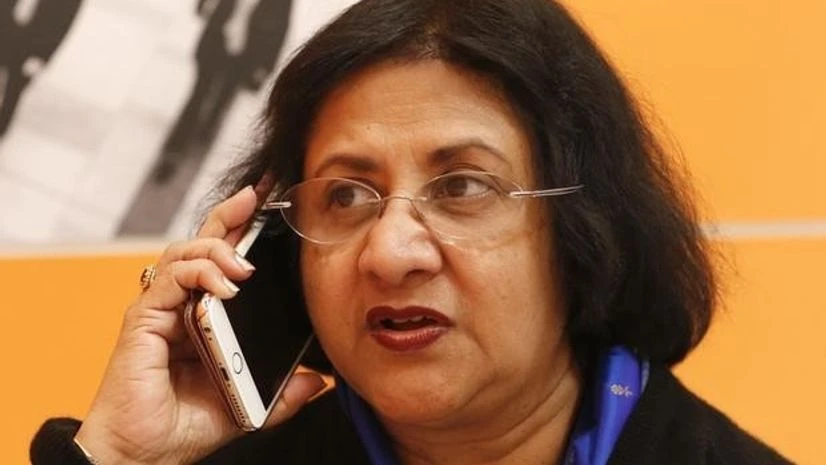The State Bank of India expects to complete a planned share sale by year-end, probably through a qualified institutional placement (QIP), bank Chairman Arundhati Bhattacharya said on Friday.
SBI, India's biggest lender by assets, has shortlisted six banks to manage the sale that could be worth up to $2.3 billion.
"This is something for which we have everything in place but we will go when we find the market is conducive," Bhattacharya told Reuters on the sidelines of the St Petersburg Economic forum.
Asked if she was confident the deal would happen this year, she said: "More or less."
Bhattacharya said the SBI would likely opt for selling the shares via a QIP, a method under which a listed company can issue equity shares and some other securities to a select group of institutional buyers.
"It's a good way of raising funds in the sense that you are then able to go with people who have always supported you as well as bring more investors into India. It's a comfortable format to work with," she added.
More From This Section
SBI recently posted its highest profit in six quarters but investors are wary about the outlook for its asset quality after it merged its five subsidiary banks with itself.
Bhattacharya said the market would have to be a "little patient for at least two quarters before we are in a position to show good numbers"
But Indian banks, staggering under the weight of an estimated $150 billion in soured assets, are now contending with a fresh worry - the telecoms sector. Big losses at telecoms firms recently prompted the central bank to advise banks to review loan exposure to the industry and make provisions.
Losses and share price falls at Reliance Communications have highlighted the squeeze afflicting the sector: fickle users, thin margins and crippling debt.
Bhattacharya said it was yet unclear if the telecoms losses could prove a bigger risk for the entire Indian economy but saw warning signs.
"If you see a sector developing a set of conditions that lead to stress it bears watching. The telecoms sector, due to various things that happened in the recent past, is showing those typical signs of stress and obviously, therefore, we need to look out," she said.
Bhattacharya said SBI's exposure to the weakest telecoms companies was "very very low" but noted the bank had expressed its concerns to the government recently.
"When we wrote to the minister we did that for the entire banking sector and believe this is not just Indian banks but there are companies that have debts to overseas banks too," she added.
It is unclear what measures the Reserve Bank of India (RBI) will take to resolve the bad loans problem at Indian banks and recent suggestions for a new ratings system lacks details, Bhattacharya said, adding:
"We need a framework (for restructuring) but the framework needs to be flexible. At this point, it is a rigid structure and it is not possible to take deep restructurings through that structure."
She also called for an "earn-and-pay" system that would make it easier for any cash-strapped institutions to meet extra provisioning requirements, a method she said had been used by the RBI in the past.
"We need something that will enable people who are having difficulties, who believe they may have paucity of capital," she said. "Some kind of relaxation is given, allowing them to make provisioning over a period of eight quarters and that is something that would be very helpful."
Bhattacharya was in St Petersburg for the annual forum at which Russian and foreign businesspeople gather and which Prime Minister Narendra Modi is attending this year. She earlier told Reuters Rosneft's delayed $13 billion takeovers of India's Essar Oil would be completed in June.

)
